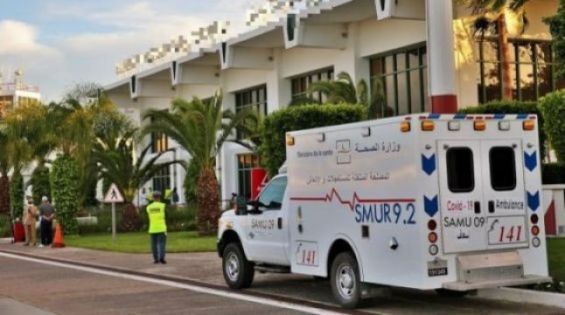As the number of daily confirmed coronavirus cases is on the rise, a new health protocol should be implemented, according to health workers. The Moroccan Society of Emergency Medicine (SMMU) and the Moroccan Society of Anesthesia, Analgesia and Resuscitation (SMAAR) has submitted a new roadmap that is readjusted to the new epidemiological situation.
In a document consulted by Yabiladi, the two bodies take into account «the increase of coronavirus cases», referring to «a new management strategy». The latter would make it possible to «effectively control the evolution of infection», especially since, over the last ten days, «the active cases recorded daily have increased tenfold and deaths have been multiplied by five».
Another «important indicator of the pressure on the hospital system» is that the number of cases in intensive care «continues to increase», the authors of the document warn.
Antibody tests to follow up late identified cases of infection
For that matter, the document drafted by 27 health professionals notably covers the management of antibody tests, the management of patients, whether they would be showing symptoms or not, as well as the strengthening of preventive measures. They recommend this form of testing in case of «initial diagnosis for symptomatic patients without signs of severity, with immediate unavailability of an RT-PCR test».
The document stresses that antibody tests should primarily target patients «followed in outpatient clinics, practices or private clinics» or those in remote areas, in whom the symptoms are suggestive of a possible virus infection.
According to doctors, this test should also be carried out to detect antibodies in asymptomatic nursing staff, «every 15 days» or in addition to detecting contact cases. The same protocol must be followed to detect antibodies in these contact cases, «on D7 in addition to detection by RT-PCR».
In addition, antibody tests will be used by collective accommodation staff who do not show symptoms. This analysis will be initial or complementary to an identification of contact cases by RT-PCR.
Leaving hospital structures for severe cases
As for patient care, the authors of the document consider that the diagnosis and follow-up of lung lesions linked to a Covid-19 infection «must be carried out as a priority within public and private hospital structures», so that they «are sufficient on their own to make the positive diagnosis».
In the same vein, doctors recommend a chest scan, «without injection and in low dose mode», in the event of «suggestive respiratory symptoms, requiring hospital care, in a covid positive or suspected patient». A CT scan with injection is also recommended, «in case of secondary worsening of symptoms or in intensive care». This protocol would not be used in the case of screening asymptomatic cases.
In view of the current epidemiological situation, «the SAMU-Center 141 cannot, on its own, be the entry point for all calls and remains fully available for emergencies, in a context of strong mobilization». Thus, they consider it «necessary» to «preserve exclusively access to the capacities for taking charge of vital emergencies, serious and / or complex cases» to this service. For other cases, it would be necessary «to favor other existing circuits», such as toll-free numbers, civil protection services, private health services or town doctors.





 chargement...
chargement...













